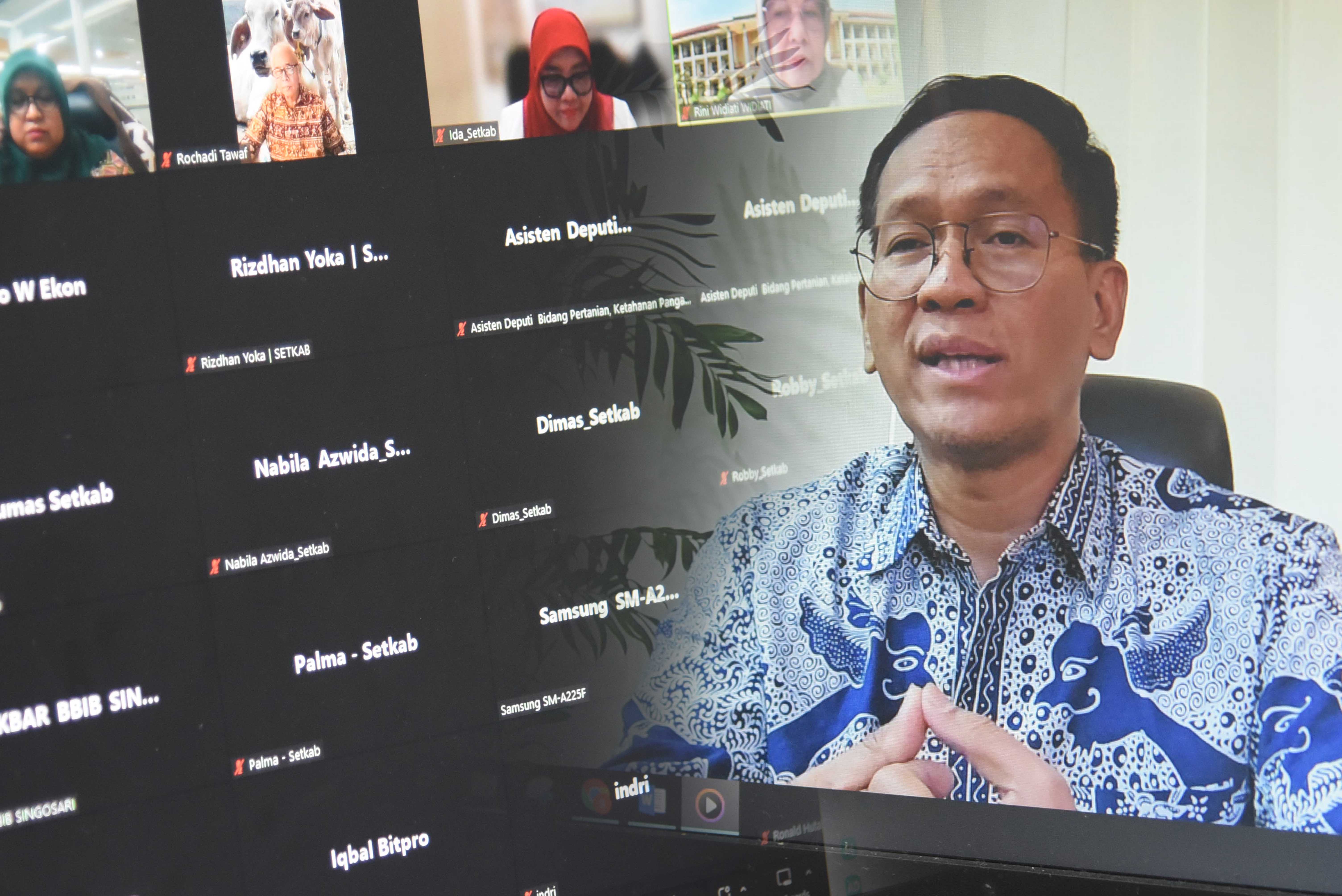Cabinet Secretariat Holds FGD on National Meat Self-Sufficiency

Deputy for Economic Affairs of Cabinet Secretariat Satya Bhakti Parikesit opens a virtual focus group discussion (FGD) on boosting national meat production, Tuesday (04/30). (Photo by: PR of Cabinet Secretariat/Rahmat)
Cabinet Secretariat Tuesday (04/30) held a virtual Focus Group Discussion (FGD) adopting the theme ” Strategy to Boost Ruminant Meat Production for National Meat Self-Sufficiency: Series II”.
In this second series of discussions, Cabinet Secretariat sought input from academics and business stakeholders to refine policy recommendations aimed at increasing ruminant meat production.
“I hope that the outcomes of FGD this morning will be favorable so we can collaboratively present comprehensive recommendations to the President,” Deputy for Economic Affairs of Cabinet Secretariat Satya Bhakti Parikesit said when opening the discussion.
The FGD involved several resource persons, including Professor Rini Widiati from Faculty of Animal Husbandry at Gadjah Mada University, whose expertise is in the Social and Economic Aspects of Animal Husbandry, and Chairperson of the Expert Council at the Indonesian Cattle and Buffalo Breeders Association Rochadi Tawaf.
“This session follows up on the initial discussion series held on April 25, 2024, where speakers from governmental institutions, including Coordinating Ministry for Economic Affairs, Ministry of Agriculture, and the National Food Agency provided insights,” the Economic Deputy said.
According to him, meat imports have surged by approximately 40 percent over the past three years. Thus, the first session’s discussion highlighted the importance of boosting the cattle and buffalo livestock population to reduce the country’s dependence on imported meat.
“In 2023, meat imports are projected to account for 49.2 percent of the total national demand. We sincerely hope to avoid falling into the same trap of heavy reliance on meat imports as has occurred with other commodities,” he said.
Bhakti also revealed that the discussion emphasized the importance of cross-sector collaboration to enhance the implementation of the national program aimed at increasing meat production.
Moreover, the various programs aimed at boosting ruminant meat production conducted by Ministry of Agriculture and other ministries/institutions have yet to reach their full potential.
“These policies have not been effectively implemented, partly due to sectoral policies that seem insufficient to establish a comprehensive national meat self-sufficiency policy framework. Therefore, cross-sector collaboration is crucial to achieving an increase in livestock population and meat production towards self-sufficiency,” he explained.
On that occasion, Bhakti expressed belief that enhancing cross-sector collaboration along with contributions from academics and business stakeholders will play a pivotal role in driving up national meat production.
“This is crucial to ensuring that priority measures are taken to realize an increase in domestic livestock population towards achieving national meat self-sufficiency, while also securing the long-term sustainability of the policy across future presidential terms,” he remarked. (TGH/UN) (RIF/MUR)








